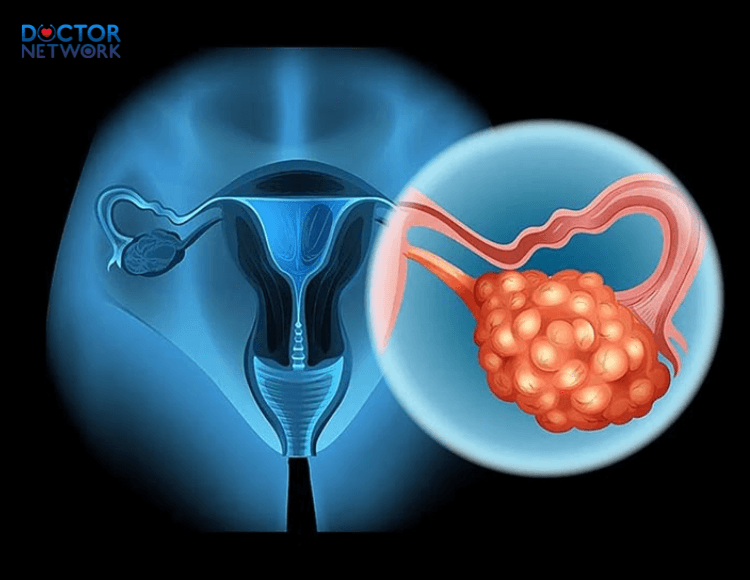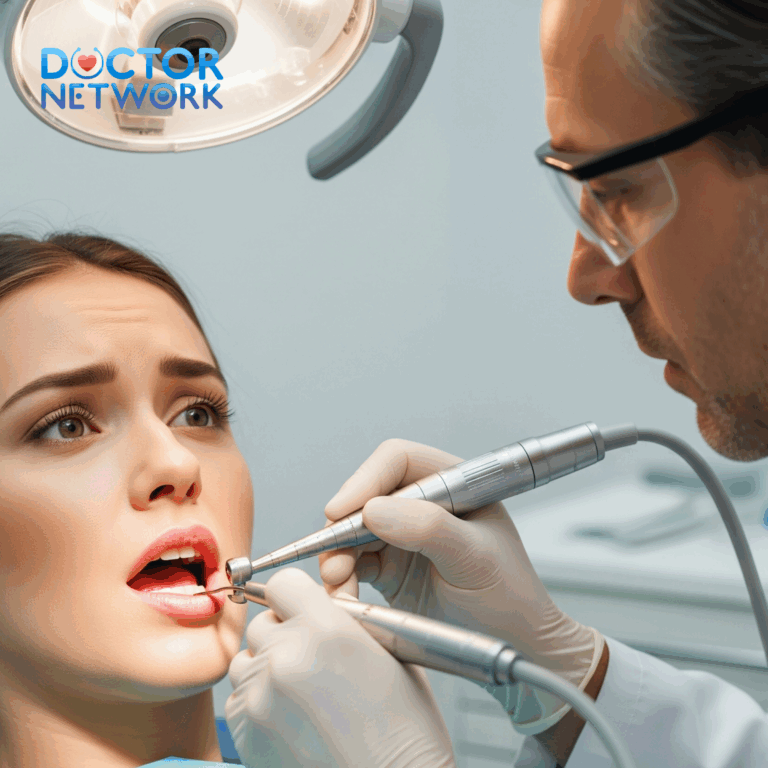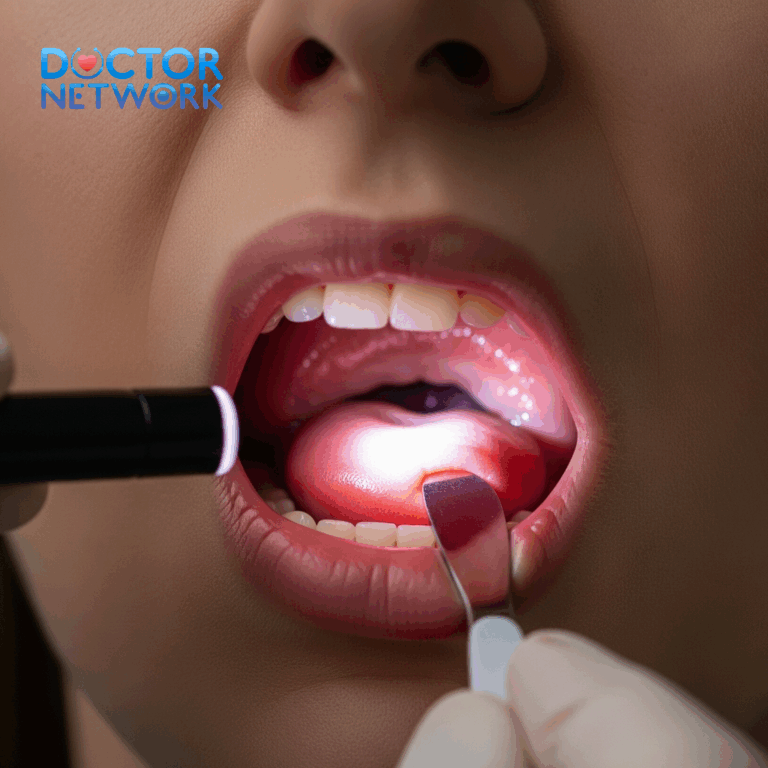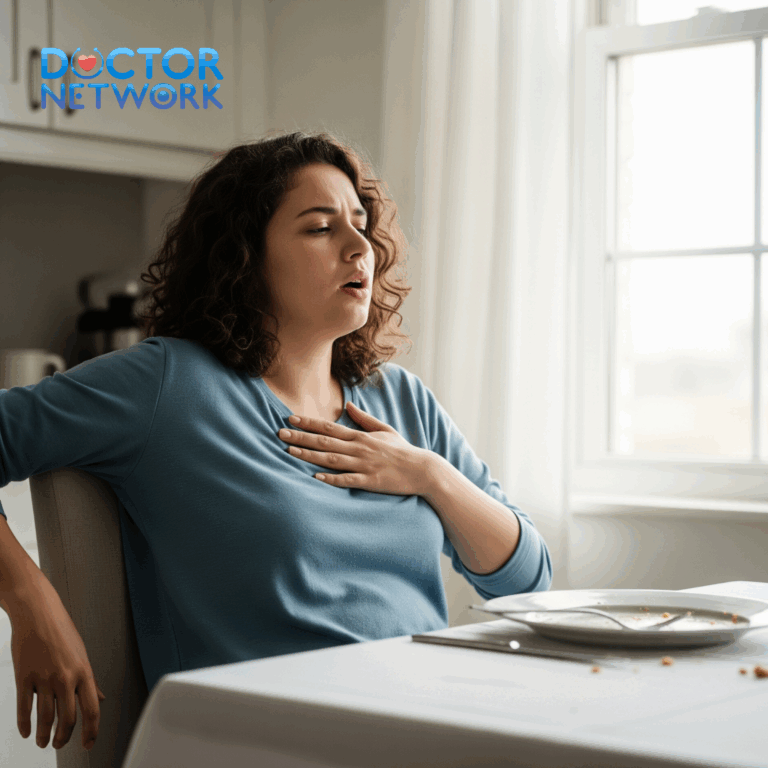Ovarian cysts are a common occurrence, especially in women of childbearing age, accounting for 80 to 90% of all pelvic masses. So, are ovarian cysts dangerous? What are the treatment options, and how can the condition be prevented? Let’s delve into these questions in the following article.
What Are Ovarian Cysts?
Ovarian cysts are abnormal collections of fluid or solid material that form either on or within the ovaries. They can manifest as unusual tissue or the accumulation of fluid, forming a cystic structure on the ovaries. Ovarian cysts account for approximately 3.6% of gynecological conditions.

Ovarian cysts are a common condition often encountered in women of childbearing age
Common Symptoms of Ovarian Cysts
Ovarian cysts come in various types, with 90% being benign (non-cancerous) and 10% having the potential to become malignant. Women approaching menopause have a higher risk of ovarian cysts developing into cancer. Often, these cysts develop silently without causing noticeable symptoms, and they might not impact or self-resolve. Here are some commonly observed symptoms:
- Pelvic, lower back, or thigh pain: This is the most common symptom, with patients experiencing vague pain in the pelvic region, along the lower back or thighs. This usually occurs when the cysts exert pressure on organs or nerves along the pelvic bones.
- Lower abdominal pain, bloating, nausea, and vomiting: Larger cysts can induce discomfort, sometimes causing abdominal tightness, bloating, and a palpable mass. Especially, persistent daily bloating, nausea, and vomiting may signal malignant cell growth within the ovarian cyst, posing risks of cancer and infection. These symptoms are often mistaken for digestive issues, leading women to overlook or underestimate their condition.
- Frequent urination: Disrupted urinary patterns may be caused by various factors, including bladder issues, urinary tract problems, or even high blood pressure. However, it can also indicate ovarian cysts pressing against the bladder, causing increased urination but with pain or discomfort.
- Pain during sexual intercourse: If pain is experienced on one side compared to the other during intercourse, an ovarian cyst might be the cause. Some types of cysts can be located near the cervix, creating obstructions and causing discomfort during sexual activity.
- Menstrual irregularities: Irregular menstrual cycles, also known as menstrual irregularities, are a common sign of many gynecological conditions, including ovarian cysts.
- Unexplained weight gain: Unexplained weight gain isn’t a specific symptom of ovarian cysts. However, if you’re experiencing sudden weight gain alongside the mentioned symptoms, suspicion and prompt medical attention are warranted.
Causes of Ovarian Cysts
The causes of ovarian cysts are often related to hormones or certain conditions such as endometriosis or polycystic ovary syndrome (PCOS). Common causes include:
- Excessive use of birth control pills.

The excessive use of contraceptive pills may pose a risk of developing ovarian cysts
- Consumption of hormone-containing foods like meat, eggs, and milk.
- Imbalanced nutrition with insufficient fresh fruits and vegetables.
- Stress or obesity.
- Liver poisoning or overworking.
Ovarian cysts are typically categorized as functional or complex. Functional cysts are often benign, pose no danger, and may resolve on their own over several menstrual cycles. On the contrary, complex cysts are more likely to silently progress over the years. When symptoms become apparent, the cysts have usually grown large, exerting pressure on surrounding organs and potentially causing serious complications, even life-threatening ones.
Are Ovarian Cysts Dangerous?
Are ovarian cysts dangerous? The danger of ovarian cysts depends on the type of cyst. Common complications associated with malignant ovarian cysts include:
- Cyst torsion: Can occur with any type of cyst, especially small cysts with long stems, causing intense pain, nausea, and possible internal bleeding.
- Ruptured cyst: Results in sudden pain and may lead to internal bleeding.
- Compression of surrounding organs: Large cysts may compress and affect the bladder, rectum, or urethra, potentially causing swelling and cancer.
Treatment for Ovarian Cysts
The treatment approach for ovarian cysts is tailored to each specific case. For functional cysts, no treatment may be necessary, and observation over 3-6 menstrual cycles may suffice, as these cysts often resolve naturally over time. Complex cysts, however, should be removed early to prevent complications and the risk of cancer.
Specific treatment methods include:
1. Serous cystadenoma
Typically found in older individuals, removal of both ovaries is often the preferred option.
2. Mucinous cystadenoma
Requires early removal to prevent recurrence.
3. Endometrioma
Cleaning out the cyst while preserving healthy tissue is attempted.
4. Ovarian cyst during pregnancy
If maintaining the pregnancy is necessary, cyst removal usually occurs in the fourth month. Complications may warrant surgery at any point during pregnancy.
In cases where the ovarian cyst has expanded and impacted nearby organs, surgery to remove the cyst is crucial to avoid damage to the ureter, pelvic artery system, and bladder.
Preventing Ovarian Cysts
To prevent ovarian cysts, consider the following measures:
1. Regular Health Check-ups
Regular health check-ups with a doctor or healthcare professional can aid in early detection of gynecological issues, including ovarian cysts.
2. Balanced Nutrition
Adopt a healthy diet rich in vitamins and minerals from fresh fruits and vegetables to maintain overall health.
3. Weight Management
Maintain a stable weight, avoiding rapid weight gain or loss to minimize the risk of ovarian cyst development.
4. Regular Exercise
Consistent physical activity helps maintain overall health and reduces the risk of ovarian-related issues, including cysts.

Regular exercise along with a healthy lifestyle helps prevent ovarian cysts
5. Stress Management
Stress can impact hormones and overall health. Learn stress management techniques such as meditation, yoga, or exercise to support well-being.
6. Avoid Smoking and Alcohol, Limit Caffeine
Smoking, excessive alcohol consumption, and high caffeine intake can affect hormones and gynecological health.
7. Hormone Issue Management
Address hormone-related issues under the guidance of a doctor to reduce the risk of ovarian cyst development.
8. Regular Ultrasound Monitoring
Periodic ultrasound examinations can aid in early detection and monitoring of ovarian cysts.
9. Medical Consultation for High-risk Individuals
Individuals with a family history or high risk should consult with a doctor regarding the use of medications or other supportive methods to reduce the risk of developing ovarian cysts.
10. Consultation with a Doctor
Always consult with a doctor to better understand your health condition and receive personalized guidance based on your individual case.
Maintaining a healthy lifestyle and seeking regular advice from healthcare professionals are crucial to reducing the risk of gynecological issues, including ovarian cysts. This article has provided information on “are ovarian cysts dangerous?” and related knowledge. We hope this information proves helpful to you.
Kiểm Duyệt Nội Dung
More than 10 years of marketing communications experience in the medical and health field.
Successfully deployed marketing communication activities, content development and social networking channels for hospital partners, clinics, doctors and medical professionals across the country.
More than 6 years of experience in organizing and producing leading prestigious medical programs in Vietnam, in collaboration with Ho Chi Minh City Television (HTV). Typical programs include Nhật Ký Blouse Trắng, Bác Sĩ Nói Gì, Alo Bác Sĩ Nghe, Nhật Ký Hạnh Phúc, Vui Khỏe Cùng Con, Bác Sỹ Mẹ, v.v.
Comprehensive cooperation with hundreds of hospitals and clinics, thousands of doctors and medical experts to join hands in building a medical content and service platform on the Doctor Network application.





























